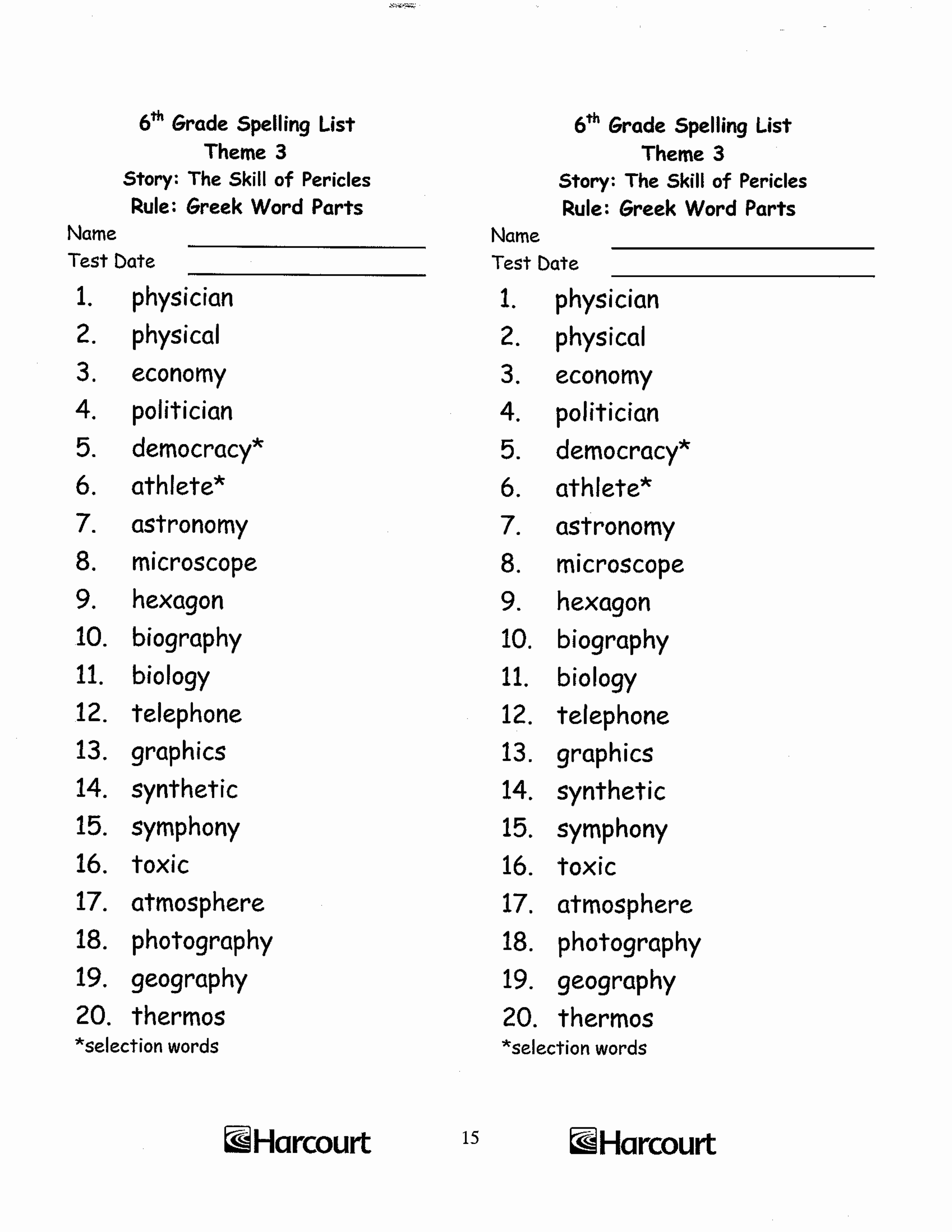The buzz of the microphone, the hushed anticipation in the auditorium, and the pressure of spelling a seemingly impossible word – these are the hallmarks of a spelling bee. While the competition itself can be daunting, for 10th graders, it presents an incredible opportunity to expand their vocabulary, enhance spelling skills, and maybe even win a coveted trophy. The key to success lies in preparation, and that starts with understanding the types of words you’ll likely encounter.

Image: mungfali.com
Navigating the World of Spelling Bee Words
Spelling bee words for 10th graders often fall into specific categories, drawing from the vast realm of academic and general vocabulary. While there’s no guaranteed list, certain areas become increasingly prevalent as students advance in grade level.
Common Themes and Word Types
One prominent theme is the exploration of Greek and Latin roots. Words like “anthropomorphic” (having human characteristics) or “centrifugal” (moving away from a center) reveal fascinating connections to the classical world and provide valuable insights into word formation. Latin and Greek roots are particularly useful for understanding complex vocabulary and often form the basis of many words.
Secondly, you’ll likely encounter words within the realms of science, literature, history, and current events. This range reflects the diverse nature of knowledge and the importance of building a strong vocabulary across various fields. Think about subjects you’re actively studying or events happening in the news. These areas are fertile grounds for potential spelling bee words.
Beyond the Basic: Building a Strategic Approach
While studying word lists and practicing spelling is important, a strategic approach can make all the difference. Avoid rote memorization, opting instead for deep understanding. Knowing the meaning and etymology (origin and history) of a word will help you visualize its structure and remember it more effectively.
For example, let’s take the word “ineffable.” Instead of memorizing “i-n-e-f-f-a-b-l-e,” try to dissect it. The prefix “in-” means “not,” and the root “effable” comes from the Latin word “effari” meaning “to speak” or “to utter.” Therefore, “ineffable” means “too great and powerful to be expressed in words.” Understanding the meaning and etymology helps create a stronger mental image and understanding of the word, leading to better retention.

Image: quizzcampusuta.z19.web.core.windows.net
The Power of Etymology and Word Families
Etymology can be a powerful tool in your spelling bee arsenal. By recognizing common roots and prefixes, you can decipher the spelling of unfamiliar words. For instance, words like “accommodate” and “accompaniment” share the root “com,” meaning “with,” and the prefix “ac,” meaning “to.” Understanding this connection aids in remembering the spelling of similar words.
Beyond roots and prefixes, explore the concept of word families. These are words with similar origins or meanings and often exhibit shared spelling patterns. Take the word “conscientious.” Words like “conscious,” “conscience,” and “consciousness” form a family, revealing connections in spelling and meaning.
Practice Makes Perfect: Utilizing Diverse Resources
The road to spelling bee success is paved with consistent practice. Embrace multiple resources to delve into the world of vocabulary. Start with traditional word lists like Merriam-Webster’s Vocabulary Builder and explore online platforms such as Vocabulary.com.
Integrate flashcard apps like Anki or Quizlet, which allow for efficient memorization and spaced repetition, a proven technique for long-term learning. Utilize websites like SpellQuiz.com for interactive quizzes and online spelling games to make learning fun and engaging.
Expert Advice: Tips from a Spelling Bee Veteran
As a veteran of numerous spelling bees, I’ve learned that effective preparation goes beyond studying word lists. Here are some key insights:
* **Embrace the dictionary:** Your dictionary is an indispensable resource. Don’t be afraid to consult it frequently, even if you’re unsure about a word’s definition or spelling. This habit of verification will build confidence in your knowledge.
* **Engage in active learning:** Simply reading a word list is not enough. Actively engage with the words you encounter. Write them out, say them aloud, and use them in sentences to solidify your understanding.
* **Seek feedback:** Don’t hesitate to ask for help from teachers, parents, or peers. They can provide valuable feedback and point out areas where you need to focus your attention.
* **Practice under pressure:** Simulate the pressure of the actual spelling bee. Have someone pronounce words for you, or use a timer to increase your focus and speed.
* **Stay hydrated:** Staying hydrated is essential for maintaining focus during a spelling bee. Bring a water bottle and sip water throughout the competition to keep your mind sharp.
FAQ: Answers to Common Questions
Here are answers to some commonly asked questions about spelling bee words for 10th graders:
- Q: Are there websites that specifically offer spelling bee words for 10th graders?
A: Yes, websites like SpellingBeeWords.com and SpellingBeeResources.com offer comprehensive word lists and resources specifically designed for 10th grade spellers. - Q: What is the best way to study a large number of words?
A: Divide your study materials into smaller, manageable chunks. Focus on one section at a time and gradually increase the number of words you cover. - Q: How can I improve my spelling accuracy?
A: Practice writing words frequently and use a dictionary to verify your spellings. Focus on the spelling rules and patterns that often cause confusion. - Q: Are there any books specifically for spelling bee preparation?
A: Yes, books like “Winning Ways: The Official Spelling Bee Handbook” and “The Scribbler’s Guide to Spelling Bees” provide strategies, word lists, and tips for success.
Spelling Bee Words For 10th Graders
Conclusion: Embark on Your Spelling Bee Journey
The journey to becoming a spelling bee champion is filled with challenges but also with the incredible satisfaction of expanding your knowledge and sharpening your skills. Embrace the opportunity to learn, practice, and thrive in the world of vocabulary.
Are you interested in tackling the challenges of spelling bee words for 10th graders? Share your thoughts and any questions you may have in the comments below!






